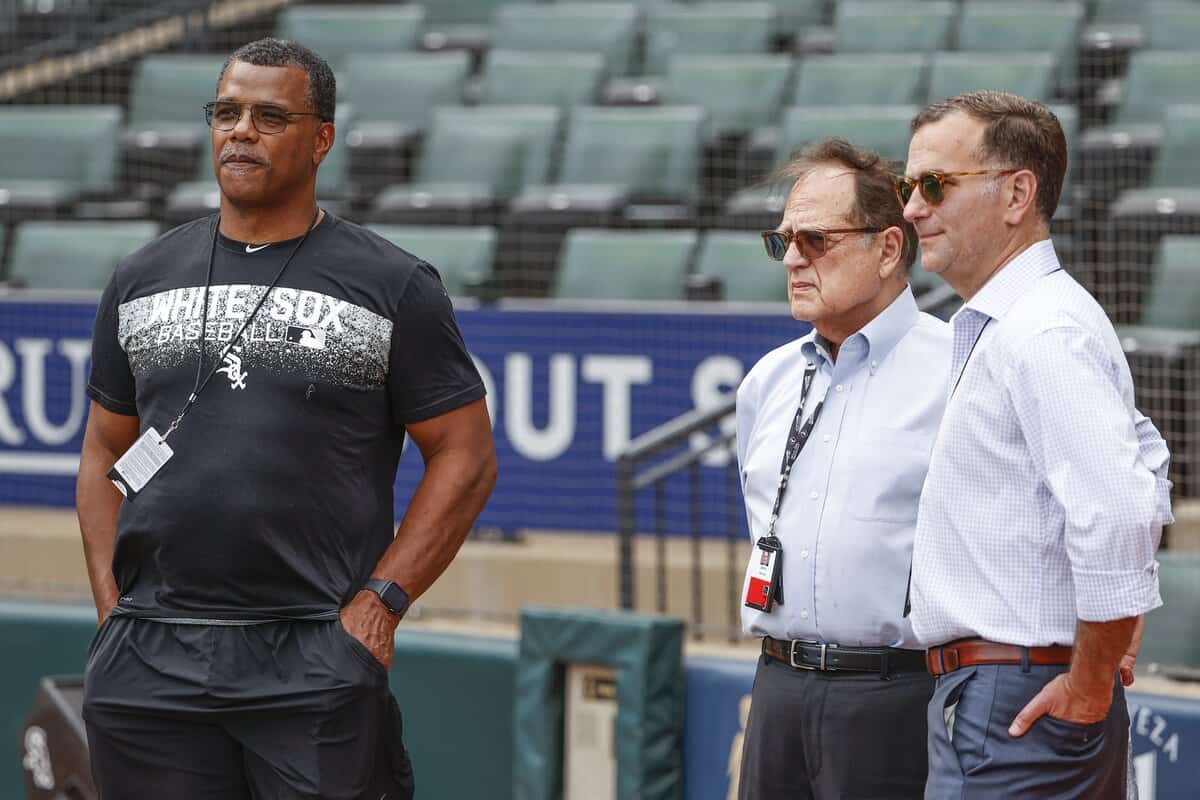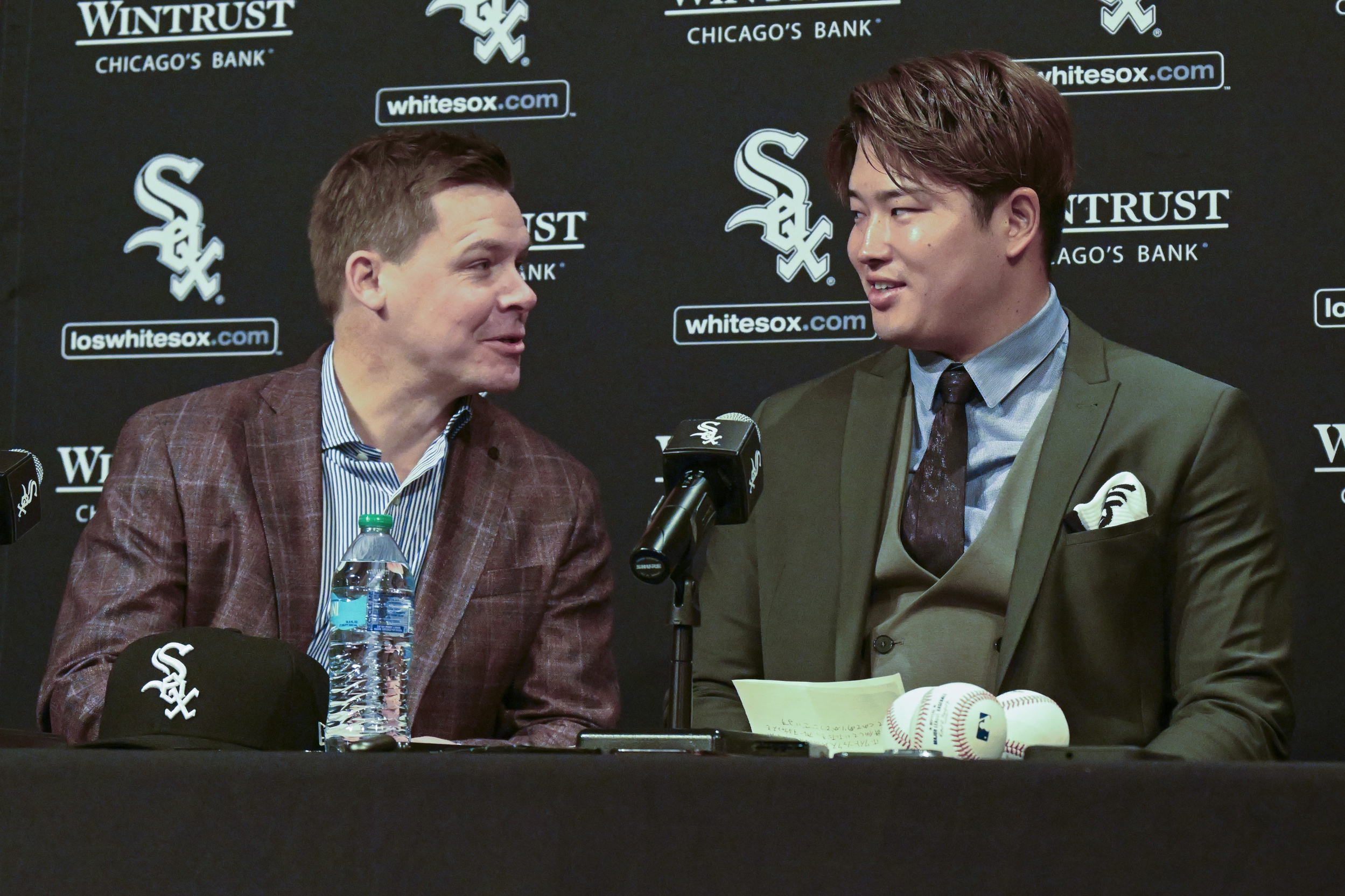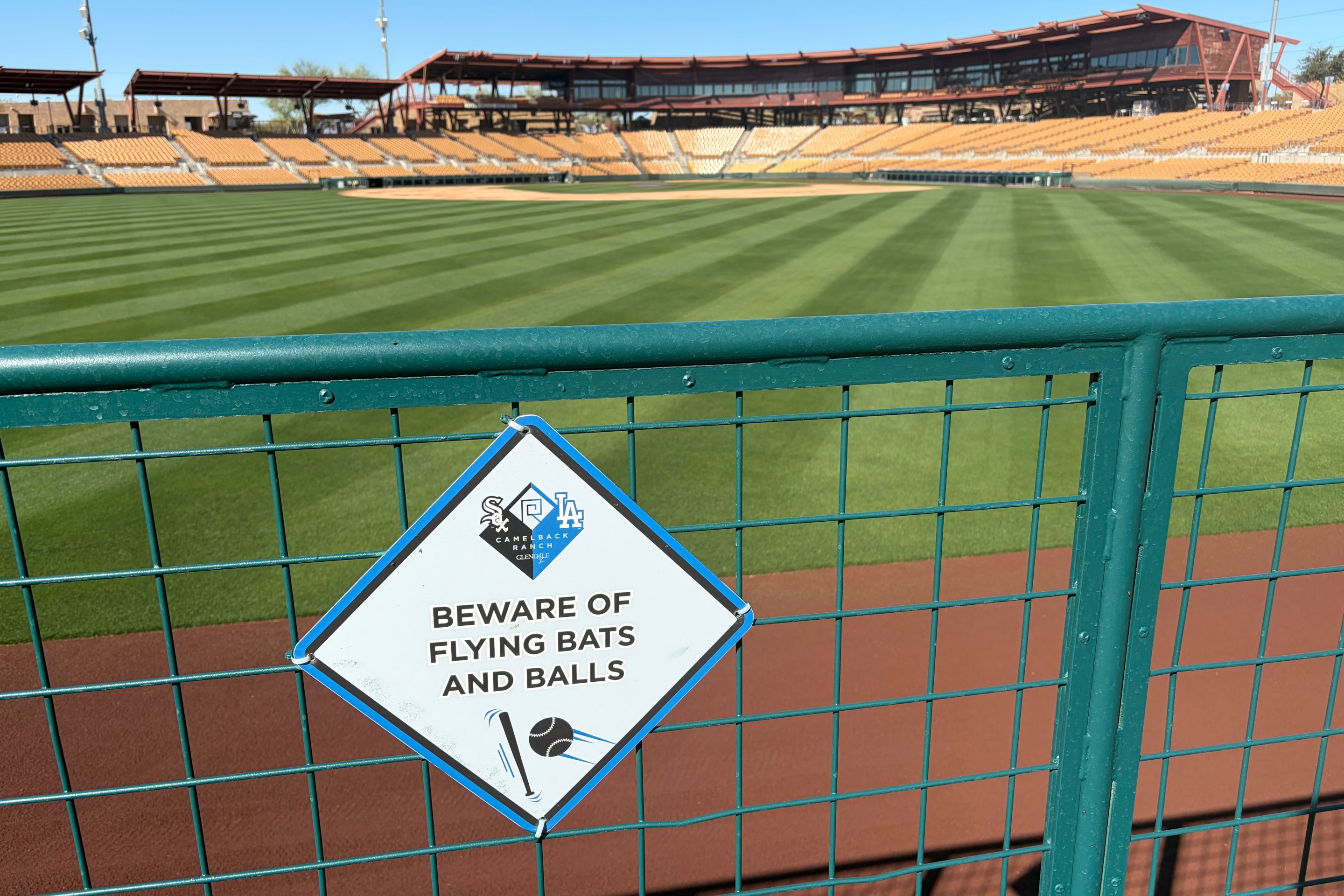We are just about to end the 2022 calendar year. So far this offseason, the White Sox have signed Andrew Benintendi to a franchise-record contract (lol) and brought in Mike Clevinger to bolster the rotation. In short, the activity so far this winter has been ... fine. These are the types of moves that we're used to the team making when they aren't weirdly fixated on relievers or actively shooting themselves in the foot or failing after the strangest possible attempt to ink a superstar. It's not a strong offseason, but it's a strong White Sox offseason.
And yet, despite a reasonable amount of activity, the anger among the White Sox fanbase is the most palpable it has ever been. Everyone knew the 2018-19 offseason was an abject failure, but the team still had the carrot to dangle. "The money will be spent." "Trust the prospects." Four years later, the facade has worn away, and there's a general sense that the carrot we were chasing was actually something unsavory under orange paint.
Now, the team isn't even bothering with paint. Knowing they had no way to sell optimism and no way to deflect vitriol, the team canceled the cash-grab known as SoxFest "due to several factors," in one of the least-effective obfuscations you'll ever see. It turns out that the only thing the team fears more than losing money is having to answer for its failures.
Though axing SoxFest was the most prominent, all other efforts to get fans' hopes up or at least offer transparency have pretty much faded away. Even Rick Hahn's meaningless platitudes have adopted an air of resignation about everything but his job security. Jerry Reinsdorf, per usual, has been nowhere to be seen, except to make a tone-deaf joke about the team's struggles while accepting an award at the Winter Meetings. The White Sox social media presence has been reduced to stuff like holiday greetings and wishing Jose Contreras a happy birthday (2005 happened!).
With the veil completely removed, and the promise of a prolific rebuild diminishing to the team's usual strategy of a hope-and-a-prayer, the organization's marketing plan seems to have shifted to milking as much cash from the fans as possible before everything truly comes crashing down. Gone are the days of fan-friendly promotions like half-price Mondays and Dollar Dog Wednesdays. Here are the days of an offensively complex ticket-pricing structure that features three different pricing tiers in Section 153 (among others), which is ::checks notes:: really close to the foul pole.
Perhaps understandably for a team that was apparently on the rise, prices for tickets, parking, and concessions surged last season. The Sox haven't revealed their pricing figures for 2023 yet, but knowing that a) inflation has been rampant the last 12 months and b) White Sox inflation always outpaces regular inflation, I'm not expecting them to cut fans a break. It's one thing to charge premium prices for a premium product, but quite another to charge them while spending more conservatively on big contracts than the Cleveland Guardians and having nowhere near their aptitude for building a baseball team.
Each holiday season, I watch Frank Capra's classic, It's a Wonderful Life, and this year in particular, I was struck by Pa Bailey's comment to Lionel Barrymore's Henry F. Potter that, "You can't begin to spend all the money you've got." Jerry Reinsdorf isn't the "warped, frustrated old man" that Potter is (for two, he has a family and supports charitable causes), but the line is plenty applicable. Jerry won't sell the team because he loves it, but he won't use his otherwise unspendable fortune to improve the thing he ostensibly loves. Fans are simply an afterthought trapped by this cruel dichotomy, no matter how many billboards Bennett Karoll admirably puts up.
That's the core of the feeling reverberating through the fan base right now. It's not just that they finished .500 in 2022. It's not just that the experience of the rebuild has felt like being subjected to Peter Griffin's Rube Goldberg breakfast machine. It's the collective realization that this team simply does not care about its fans. This shouldn't be a surprise (after all, most businesses don't really care about their customers), but the way the White Sox have been so shameless about it has been painful to the many who consider their fanhood a core facet of their lives.
That pain has led many to really examine their relationship with the Chicago White Sox. We put our time, energy, hopes, and money into following the team. What could the team do to reward our patronage? They could build a winner through sound development and decision-making. They don't. They could make investments in elite-level talent commensurate with the passion shown by the fan base. They don't. They could hold the people responsible for on-field failures accountable. They don't. They could make the ballpark experience more affordable through pricing and promotions. They don't.
This all has left fans wondering just what it is that they get out of this relationship. Especially now that the wolf no longer feels compelled to use sheep's clothing, the question is more than fair.






